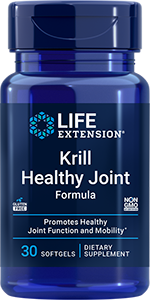- Science & Research
- Science News
- Newsletter
- 2012
- June 15

Newsletter
Newsletter
Poor Survival Among African American Cancer Patients Low Vitamin D Levels
Poor survival among African-American cancer patients could be explained by low vitamin D levels
Friday, June 15, 2012. The authors of a review published in the April/May/June 2012 issue of the journal Dermato-Endocrinology suggest that decreased production of vitamin D by African Americans may be a reason for their higher rates of cancer mortality in comparison with Caucasians. William B. Grant of the Sunlight, Nutrition and Health Research Center in San Francisco and Alan N. Peiris of Mountain Home Veterans Administration Medical Center and East Tennessee State University write that various factors have been suggested to explain African Americans' increased likeliness of dying from a variety of cancers, including cancer stage at time of diagnosis, socioeconomic status and differences in treatment. The incidence of many of these cancers or the risk of dying from them has been associated in numerous studies with reduced sun exposure and/or lower serum 25-hydroxyvitamin D [25(OH)D] levels. Because African Americans have a 40 percent lower serum 25-hydroxyvitamin D concentration than Caucasians due to darker skin pigmentation that impairs production of the vitamin from sunlight, Drs. Grant and Peiris suggest a causative role for insufficient vitamin D levels in the decreased survival observed in this group. The current review evaluates scientific literature concerning cancer disparities between African Americans and Caucasians, as well as studies examining vitamin D status and cancer in order to evaluate the evidence supporting this hypothesis. Seventeen studies concerning the association between vitamin D adequacy or deficiency and cancer recurrence and survival were included in the review. Significant associations between higher vitamin D levels and cancer survival were found in studies that analyzed all cancers as well as those that evaluated breast, colon, colorectal, lung and prostate cancers, and lymphocytic leukemia/chronic lymphocytic lymphoma, Hodgkin's lymphoma and non-Hodgkin's lymphoma. Also reviewed were 37 studies that examined cancer mortality rate disparities not explained by known factors for 25 types of cancer occurring among African Americans and Caucasians. "Statistically significant disparities emerged for cancer-specific survival rates for 13 types of cancer: bladder, breast, colon, endometrial, lung (non-small cell, stage III, IV), ovarian (advanced), pancreatic, prostate, rectal, testicular, vaginal cancer, Hodgkin lymphoma, stage II, and melanoma," the authors report. "All cancers for which a disparity in cancer-specific survival was reported also have evidence for a beneficial role of vitamin D, as do most of those for which we found disparities for all-cause survival." Because cancer takes years to reach a stage in which it can be detected, high serum vitamin D concentrations over the course of a lifetime are needed to reduce risk, the authors note. Once the disease has been diagnosed, vitamin D improves survival via antiangiogenic and antimetastatic mechanisms, as well as by other factors. In addition to reduced production of vitamin D by the skin, obesity (which occurs more often among African Americans compared to Caucasians) could also account for some of the lower levels of vitamin D that occur in this population, since having a higher body mass index has been correlated with decreased vitamin D status. "Lower serum 25(OH)D concentrations among African Americans than white Americans may explain many of the cancer survival disparities after consideration of socioeconomic status, stage at time of diagnosis, and treatment," the authors conclude. "If substantially correct, programs to increase serum 25(OH)D concentrations among African Americans could reduce the cancer disparities." | ||||||||||||||||||||||||||||||||||||||||
 | ||||||||||||||||||||||||||||||||||||||||
| ||||||||||||||||||||||||||||||||||||||||
 | ||||||||||||||||||||||||||||||||||||||||
|
| ||||||||||||||||||||||||||||||||||||||||
|
Prelox® is a registered trademark of Horphag Research Ltd. Prelox® is protected by U.S. patent #6,565,851B2. | ||||||||||||||||||||||||||||||||||||||||
The latest news on aging, nutrition, and vitamins
Lab
Testing
How Life Extension lab testing works










